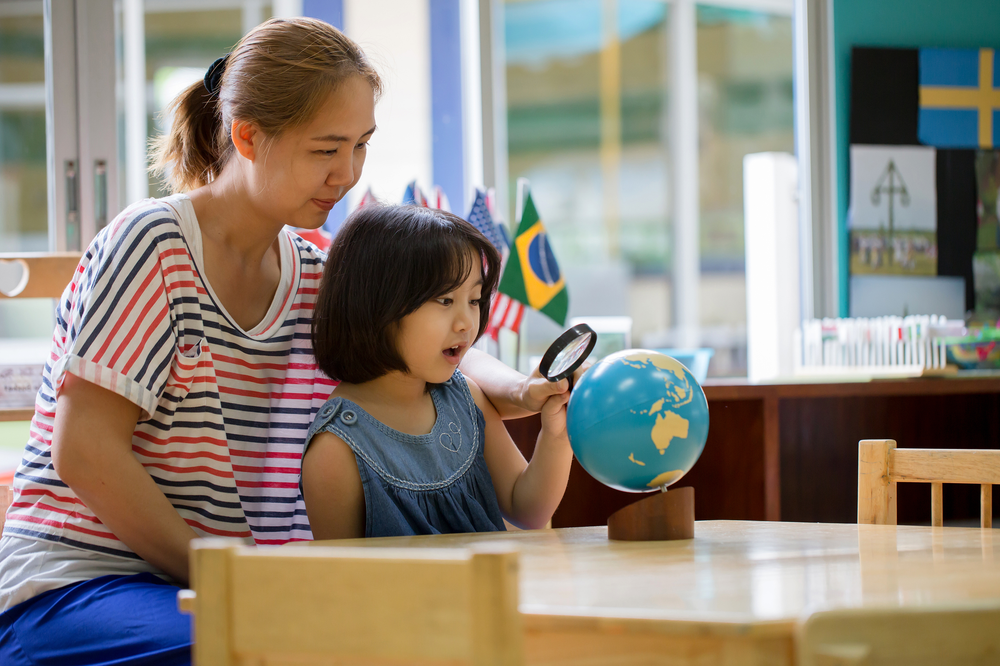
environment, from Merriam-Webster:
1: the complex of physical, chemical, and biotic factors (as climate, soil, and living things) that act upon an organism or an ecological community and ultimately determine its form and survival
2: the aggregate of social and cultural conditions that influence the life of an individual or community
Why do Montessori teachers have to make everything so complicated? Why can't we just call it a classroom? Simply, because it's much more than a classroom. The prepared environment is one of the cornerstones of the Montessori Method, and, like each of the other carefully named didactic materials it contains, its label identifies its essence.
Remember, Montessori was a physician, and her use of the language of "environment" was more precise than we may think of the word today. Indeed, the use of the word to describe the context within which a person lives only dates to about fifty years or so before Montessori applied it to her method. She was not picking a general label, but a very specific way of understanding the relationship between the child's development and the context within which it unfolds.
For Montessori teachers, using the language reminds us of a few critical pieces of our work. First, it de-emphasizes the academic successes of the space. Yes, children in Montessori environments tend to do quite well academically, but that's an effect, not an objective. Second, it focuses attention on the society within the environment rather than on the lesson plans of the teacher, harkening to Montessori's observation that, "Education is a natural process carried out by the human individual, and is acquired not by listening to words, but by experiences in the environment." Finally, it reminds us of our first work as Montessori guides, to observe children and prepare a space within which they can thrive without us, that "first aim" of the adult, "to render the growing child independent of the adult."
The language of "the prepared environment" offers some guidance to parents as well. It expands the often-held belief that learning happens only at school or with teachers, to include an appreciation of the dynamic interaction between context and learner, in and out of school. It hints, too, that we're doing something different here at Montessori school .When you choose Montessori for your child, you're not just selecting a curriculum or reading program. You're offering your child time in a rich, diverse and child-focused context that will attend to far more than their scores on a test. Finally, it encourages parents to reconsider the other environments within which their children learn and grow. When we define learning spaces as environments rather than classrooms, we recognize that learning happens everywhere. The difference in the Montessori space is not that the environment influences the child more than in any other setting, but that the environment has been more carefully prepared to make sure that influence is positive and propelling.
When we use the language of "the prepared environment," we offer ourselves a reminder and a goal: to know the child and the context so intimately that we can most effectively prepare the environment for the child and the child for the rest of the world.
#PreparedEnvironment #ForParents #General #Theory
